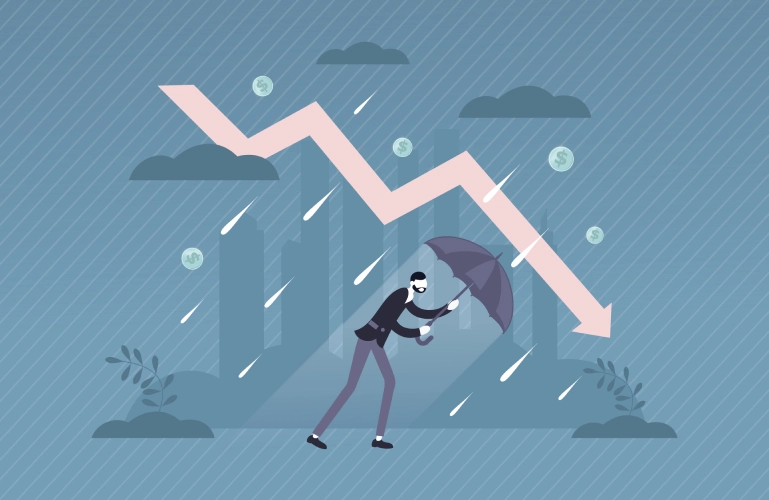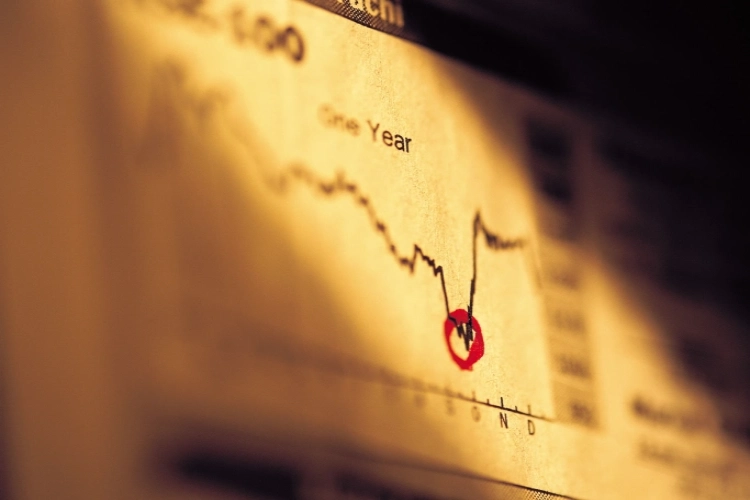Are you a day trader who loves timing the stock market? You might want to think twice about your trading strategy. Timing the market is the easiest way to lose money, and most day traders don’t want to hear it. But what if there was a more boring alternative that could actually make you money?
As an amateur trader, it might be time to adopt a new strategy that prioritizes long-term gains over short-term risks. Let’s talk about why market timing is risky business and how you can shift your focus to a more sustainable approach.
The potential dangers of attempting to time the market
Market timing is an investing strategy that aims to predict when stock prices will rise and fall. The idea is to buy low and sell high, but it’s easier said than done. One of the biggest risks of market timing is the potential to miss out on gains when you move your money into more conservative investments, like bonds. If the market keeps performing well during that time, you’ll miss out on those gains.
But that’s not the only risk. Market timing requires predicting the future, which is impossible to do with certainty. Even the most experienced investors and analysts get it wrong sometimes. In fact, research has shown that attempts to time the market often result in lower returns over the long term.
Another risk of market timing is that it can lead to emotional investing. When you’re trying to predict market movements, it’s easy to get caught up in fear and greed. Fear can cause you to sell off investments at the wrong time, while greed can cause you to hold onto investments for too long.
Other factors that come into play:
1.The stock market has proven to be more financially beneficial in the long term
Have you ever wondered why some people seem to be able to predict the stock market’s every move? You might be surprised to learn that even professional traders consider themselves lucky if they get it right more than half of the time. So if nobody knows what the market will do, why don’t we all sell right before a crash and buy low during the dip?
Well, it’s not that simple. Accumulating real wealth takes time. The stock market shows its greatest promise not in the short term, but in the long term, over 40 years. Since 1926, stocks have never lost money in any 15-year period. But in the short run, you can experience some serious dips in the market, just like we saw during the COVID-19 pandemic.
It’s important to remember that volatility works both ways. While the stock market experiences periods of extreme negative volatility, there are also periods of extreme positive volatility where the market can soar. If you mistime the market, you could end up missing out on significant gains.
So what should you do? Instead of trying to predict the market’s every move, focus on a long-term strategy. Invest in a diversified portfolio that aligns with your financial goals and risk tolerance. Resist the temptation to panic during market downturns and stick to your investment plan.
2.One can easily fall prey to hindsight bias since hindsight is always perfect.
Have you ever tried to predict the stock market and ended up losing money? It turns out that the best time to pinpoint a market high or low point is actually after it has occurred. Many people make the mistake of moving their money out of stocks during a low period, but by the time stocks take off on another upswing, it may be too late to capitalize on gains. This is known as hindsight bias in psychology, where we overestimate our ability to predict an outcome that we couldn’t have predicted before it happened.
Take the dot-com bubble as an example. Many financial experts were only able to point to a set of events after the fact that indicated a market in trouble. While it may seem like we can now pick winners and losers more easily based on what we’ve seen previously, market timing, stock speculation, and general predictions of where things will go are not reliable indicators.
3.Greed, fear and overconfidence
Are you one of those traders who think they’re the exception to the rule when it comes to market timing? Sure, you might have predicted market events correctly before, but that doesn’t mean you’ll be right every time. Overconfidence combined with decision-making based on market timing can lead to significant losses. It’s important to acknowledge that market timing doesn’t work for most people, regardless of how well you think you know the markets.
Emotions also come into play when it comes to investing. Greed can be just as powerful as fear. In the dotcom boom, investors were scrambling to buy every internet-related stock without even knowing the underlying companies. This greed led to a significant market crash. Fear, on the other hand, can cause investors to start selling out of fear of losing even more money. Unfortunately, this herd mentality only causes stock prices to fall even further.
4.Your money gets deducted by commissions and fees.
Are you aware that small commissions can make a significant difference in your profits? Let’s say you invest in a $15 stock and sell it for $16, resulting in a $1 profit. However, this amount might be quickly diminished depending on the trading fees charged by your brokerage firm. So, it’s crucial to factor in the commission costs before making any trades. Remember, every penny counts in the world of investing!
5.Your profit gets reduced by taxes.
Making money through investments is an exciting way to grow your wealth. However, it’s important to remember that you have to pay taxes on your earnings. If you sell an investment within a year of purchasing it, you’ll incur short-term capital gains, which are taxed as ordinary income. So, that $1 profit you were excited about could be completely wiped out by taxes. It’s crucial to consider taxes when making investment decisions to ensure you’re making informed and profitable choices.
There’s no doubt about it - in order to effectively time the market, it’s crucial to have precise knowledge of when to withdraw and reinvest your funds. However, unless you possess remarkable abilities to forecast the market’s lowest and highest points, you are likely to end up with unfavorable outcomes. Chances are, you have already experienced the consequences of selling too soon and buying back too late. Are you still willing to gamble your hard-earned money?

 What Dictactes The Price Of Oil
What Dictactes The Price Of Oil